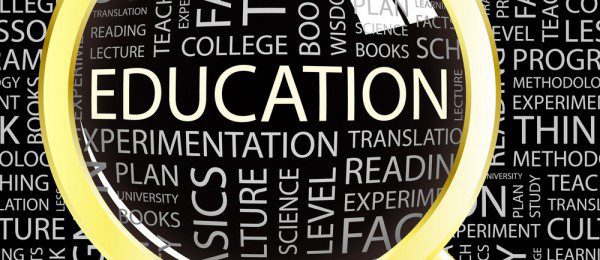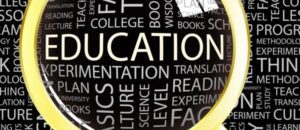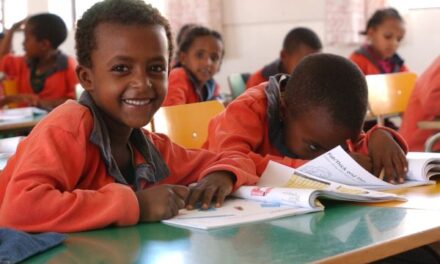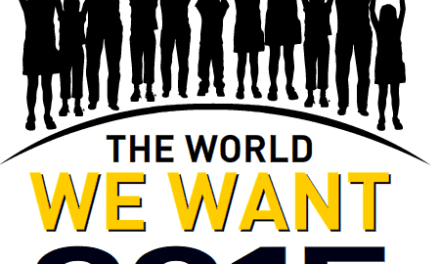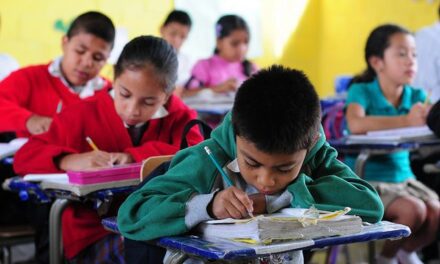A Cautious Welcome
The High Level Panel (HLP) Report deserves a cautious welcome on two counts. First, education finds a place in the list of 12 indicative Universal Goals, and recognition – albeit uneven – of its relevance to wider development agendas. This is a relief to those s who have doubted the effectiveness of some post-2015 international consultations on education, especially their ability to place education more strategically within poverty, inclusive growth and sustainable development discourse.
Secondly, while there is nothing inherently new in the HLP’s education propositions,, their scope is a good deal broader than the MDGs (though not EFA), extending beyond formal schooling and basic education.
Universal Challenges
The l thesis of the HLP report is that there are global challenges – however these may manifest themselves in different countries and contexts – that are of universal importance. Five big transformative shifts are identified: leave no one behind; put sustainable development at the core; transform economies for jobs and inclusive growth; build peace and effective, open and accountable institutions for all; and forge a new global partnership. Taken individually, the first four of these injunctions do not represent new territories in themselves. Taken together, and acted upon internationally through an as yet ill-defined new global partnership can – the High Level Panel contends – bring about profound structural transformations.
The Place of Education
Where does education fit into this big aspirational picture? In the main body of the report, education receives sporadic but not unimportant recognition. The voice of young people is cited in asking for education beyond primary schooling including life skills and vocational training. The plea for ending violence and discrimination in schools and equal opportunities for the disabled is given some prominence. Rightly, under “leave no one behind”, the absence of formal schooling and/or its poor quality is highlighted. But there is no direct mention of a role for education in creating sustainable lifestyles, although the importance of education, training and skills for work and livelihoods is a headline message, especially in the context of youth unemployment. The section on peace and accountable institutions is silent with regard to education. Interestingly, the Global Partnership for Education is selected as a working example of a multi-stakeholder partnership in practice. Usually, it is the health sector that is cited when international good practice is identified.
The Renewal of Global Goals
The Panel likes global goals. It argues that that they can be a powerful force for change and that the MDGs have been effective in helping to mobilise resources and motivate action. It does not, however, reflect in any significant way, on the reductionist nature of global targets and the variability of their use across the world since 2000, by different actors for different purposes. But it does make an important distinction between the universality of high level goals and the need for specific targets to be set at the national or even local level, to account for different starting points and contexts. In reality, this has been the position adopted by many countries in the MDG era, but if global targetry is to remain, as it seems that it will, this is an important and necessary distinction.
The report also makes clear that for global goals and national targets to be of greater practical value and use, much better global data is required. It advocates a new global data partnership to be designed, in the first instance, to establish post-2015 baseline data. Education should have useful experience to share in this regard given the international efforts that have been made over the past decade by the UNESCO Institute for Statistics and the Education for All Global Monitoring Report.
Twelve “illustrative” SMART universal goals are proposed to cover and capture progress towards the eradication of poverty and the transformation of economies. These provide a framework for the identification of what are described as global minimum standards and indicators. What this means in practice will need much more detailed attention that it gets in the report. The targets under each goal are annotated in three ways:
- As candidates for global minimum standards, including “zero goals”
- As indicators to be disaggregated
- As targets that require further technical work to find appropriate indicators
Goal 3: Provide Quality Education and Lifelong Learning
The two page text on Goal 3 (Provide Quality Education and Lifelong Learning) pulls together some narrative threads in the main report. It summarises the many pronged benefits that accrue to quality learning (although some of the evidence that is quoted is surprisingly dated, including from the 1990s). In this text, reference is made to the importance of education in countries emerging from conflict.
Of particular interest, and departing in some measure from the usual international focus on low income countries, the panel report states that there is a global education, learning and skills crisis. Brief examples are cited from the European Union and from the USA to demonstrate that in education the challenge is universal. It will be interesting to see how strongly this position is advanced across the international education and development community and the traction that it gains. The OECD has something of a track record in this regard but it is rarely a starting point for most international discourse and programming. And yet, as the report rightly points out, the simple categorisation of countries is not a helpful construct in an interconnected, mobile world.
In the debate that follows the HLP report, the issues that are likely to surface include: education cycles; the loss of specific and direct attention to gender inequalities, and; the potential restrictiveness of the schooling propositions…
The education goal (Goal 3) Provide Quality Education and Lifelong Learning makes the case for four sub-goals and targets each with specific indicators.
The rationale for the selection that has been made is not spelt out in any great detail. The place and the developmental role of higher learning and research and the dissemination of knowledge is conspicuous by its absence (in any of the 12 goals). So too is the lack of attention, to literacy and non-formal education – despite the revival of the term, lifelong learning, which is quite narrowly defined in the HLP report. The emphasis on the quality of learning processes and outcomes within formal schools is a not an unexpected priority. The inclusion of pre-primary education can be seen as responding to evidence and campaigning that has gathered both credibility and momentum over the past decade. However, the debate will undoubtedly continue around the use of the term pre-primary education as distinct from the broader, and many would argue, more developmentally robust concept of early childhood care and development; a construct that fits more closely with the report’s own intention to maximise linkages across development interventions in transformative ways.
The two schooling goals will undoubtedly be the subject of further debate in a universal context. Primary and junior secondary education are separated out. 3a) is to ensure every child, regardless of circumstance, completes primary education, able to read, write and count well enough to meet minimum learning standards. This is seen as a candidate global minimum standard and requiring disaggregation of unspecified indicators. 3b) is to ensure every child, regardless of circumstance, has access to lower secondary education and increase the proportion of adolescents who achieve recognised and measurable learning outcomes to x%. This too is proposed for global status and detailed disaggregation. This is a more complex statement than 3a). Apart from its grammatical limitations, its access and learning objectives do not coalesce as is the case in 3a).
In the debate that flows from these two propositions, the following issues are likely to surface:
- Would a single basic cycle of education goal be more universal in capturing equity, access and quality imperatives?
- Is the loss of specific and direct attention to gender inequalities, accepting that disaggregated data will address part of the story, a retrograde step compared with EFA and MDG agenda?
- As many countries see a full cycle of secondary education as an essential basis for a modern economy will the draft schooling propositions appear restrictive?
As is usually the case, the report’s text on the meaning of education is a good deal more sophisticated than the barer bones of the goal statements. Those who have worked on education strategy papers will sympathise. The danger remains that the goals simplify and reduce the complex intentions.
3d) specifies increasing the number of young and adult women and men with the skills, including technical vocational, needed for work by x%. Quite what this statement means is unclear. Given the reference to lifelong learning in the goal headline perhaps it refers to that. If it is focussed specifically on employability then a clear link with Goal 8 (Create Jobs, Sustainable Livelihoods, and Equitable Growth) might be expected. But beyond the headline of 8b), to decrease the number of young people not in education, employment or training there is no explanatory text to help give a more nuanced understanding of education, training and livelihoods. This is a major weakness.
Where Next?
As recent ODI commentary noted: We’re firmly in “jigsaw” territory – a report trying, ambitiously, to solve interrelated problems at once. It sets out the destination well. We’re unclear about the journey, and the roles of different actors in getting us there – but there’s still two years left to negotiate.
Negotiation around education post 2015 imperatives and directions is active at the international level (ODI, UNICEF, GMR, UNESCO, GCE etc.) but far less obvious within individual countries where the magic date of 2015 is of limited import for most citizens and politicians.

How does this important debate get any coverage outside of those aficionados who live and breathe the development debate?
But it is an important and necessary debate on a number of counts. First, can the panel’s transformative agenda be made real, in ways that engage all communities (however these may be defined)? The experience of post 2000 is that global agendas embedded primarily in UN and other international agencies struggle to find political and public support in transformative and sustainable ways. The international advocates for global agendas continue to find it difficult to speak with a clear and single voice in their interactions with individual countries. The panel report is not re-assuring in this regard.
Second, how do specific sectors and interests such as education find their place and their voice in wider development transactions? This is particularly challenging when education itself is a well fought over battleground, internationally and nationally. Numerous agendas are at play; the right to education; defining priorities (ECCE, skills, the quality of schooling and how to achieve it); a whole sector approach to developing effective and accountable systems of education; and, the relative merits of public and private education. Which bodies, organisations, and champions are able to provide such a unifying and influential voice?
Third, how does this important debate get any coverage outside of those aficionados who live and breathe the development debate? The High Level Panel extolled the virtues of what appear to be a consultative process. But this is not headline territory in most countries. Are there ways in which the political process across the world really engages with a New Global Partnership in any meaningful way?
Some of these questions will get an airing at the UKFIET 2013 Conference in Oxford in September when the perspectives of some governments, aid agencies, researchers and consultancy firms will be advanced on Education and Development Post 2015.
Come and join the debate.
#ukfietconf

